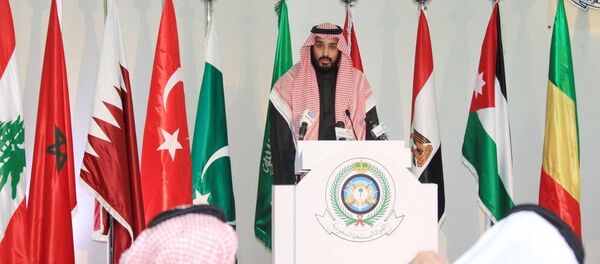Last week, the Saudi government announced the formation of a new anti-terrorist coalition comprised of 34 nations, including Turkey, Egypt, Malaysia and Jordan among others.
The main purpose of the Saudi-led coalition is the overthrow of Syrian President Bashar al-Assad either by political or military means, Egyptian political expert Khalid Umar bin Kakakh argued.
But this would be a difficult task to accomplish, as forces loyal to President al-Assad have been effectively fighting various armed militant groups trying to overthrow the government for five years by now, but failed to reach their goal. Right now it would be even harder for them to topple al-Assad, as both Russia and Iran are behind the Syrian government, Kakakh explained.
Besides the newly formed Saudi-led mission, there are two other anti-terrorist coalitions in the region — one led by the United States and its allies and the other one directed by Russia.
The analyst said it's still unclear what was behind the idea of creating a separate Muslim anti-terrorist coalition in addition to the two major ones that already exist. Saudi Arabia and its allies have yet to define their enemy in Syria.
Saudi Arabia's Defense Ministry Mohammad bin Salman did not elaborate on what measures would be taken against terrorists. He only said that a headquarters will be established in Riyadh to "coordinate military operations."
Another important issue is the coordination of the new alliance with the existing forces in the region. Would the Muslim coalition coordinate their efforts with their American and Russian counterparts, the al-Ahram expert posed a critical question.



